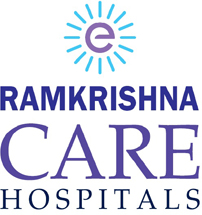Blood Transfusion Services in Raipur
Blood transfusion is generally the process of receiving blood or blood products into one's circulation intravenously. Transfusions are used for various medical conditions to replace lost components of the blood. Early transfusions used whole blood, but modern medical practice commonly uses only components of the blood, such as red blood cells, white blood cells, plasma, clotting factors, and platelets. Blood Transfusion Services in Raipur is dedicated to maintaining a safe and efficient blood supply to support the healthcare needs of the community.
Blood donation: Blood transfusions typically use sources of blood: one's own (autologous transfusion), or someone else's (allogeneic or homologous transfusion). The latter is much more common than the former. Using another's blood must first start with the donation of blood. Blood is most commonly donated as whole blood intravenously and collected with an anticoagulant. In developed countries, donations are usually anonymous to the recipient, but products in a blood bank are always individually traceable through the whole cycle of donation, testing, separation into components, storage, and administration to the recipient. This enables the management and investigation of any suspected transfusion-related disease transmission or transfusion reaction. In developing countries the donor is sometimes specifically recruited by or for the recipient, typically a family member, and the donation occurs immediately before the transfusion.
Processing and Testing: Donated blood is usually subjected to processing after it is collected, to make it suitable for use in specific patient populations. The collected blood is then separated into blood components by centrifugation: red blood cells, plasma, platelets, albumin protein, clotting factor concentrates, cryoprecipitate, fibrinogen concentrate, and immunoglobulins (antibodies). Red cells, plasma and platelets can also be donated individually via a more complex process called apheresis.
- The World Health Organization (WHO) recommends that all donated blood be tested for transfusion transmissible infections. These include HIV, Hepatitis B, Hepatitis C, Treponema pallidum (syphilis) and, where relevant, other infections that pose a risk to the safety of the blood supply, such as Trypanosoma cruzi (Chagas disease) and Plasmodium species (malaria). According to the WHO, 25 countries are not able to screen all donated blood for one or more of: HIV; Hepatitis B; Hepatitis C; or syphilis. One of the main reasons for this is because testing kits are not always available. However, the prevalence of transfusion-transmitted infections is much higher in low-income countries compared to middle and high-income countries.
- All donated blood should also be tested for the ABO blood group system and Rh blood group system to ensure that the patient is receiving compatible blood.
- In addition, in some countries platelet products are also tested for bacterial infections due to its higher inclination for contamination due to storage at room temperature. Presence of Cytomegalovirus (CMV) may also be tested because of the risk to certain immunocompromised recipients if given, such as those with organ transplant or HIV. However, not all blood is tested for CMV because only a certain amount of CMV-negative blood needs to be available to supply patient needs. Other than positivity for CMV, any products tested positive for infections are not used.
- Leukocyte reduction is the removal of white blood cells by filtration. Leukoreduced blood products are less likely to cause HLA alloimmunization (development of antibodies against specific blood types), febrile non-hemolytic transfusion reaction, cytomegalovirus infection, and platelet-transfusion refractoriness.
- Pathogen Reduction treatment that involves, for example, the addition of riboflavin with subsequent exposure to UV light has been shown to be effective in inactivating pathogens (viruses, bacteria, parasites and white blood cells) in blood products. By inactivating white blood cells in donated blood products, riboflavin and UV light treatment can also replace gamma-irradiation as a method to prevent graft-versus-host disease (TA-GvHD).

